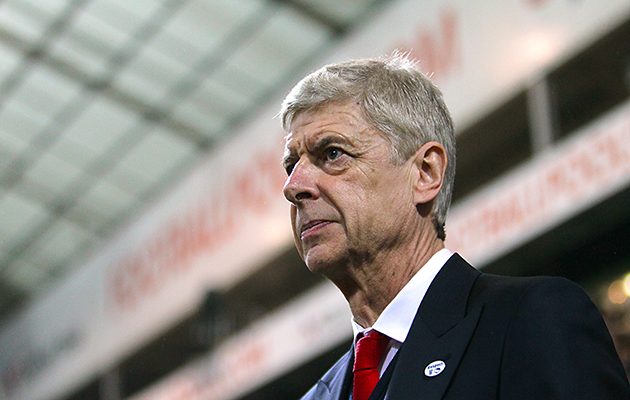Wenger besieged. Palace traumatised.
The knives are out and not for the first time for Arsene Wenger, long serving manager of Arsenal. Two embarrassing defeats in successive games have destroyed any faint hope of a challenge for the Premier League title. There is always the mirage of European success to console, manager, players and perhaps even the many disaffected supporters, but mirage alas it appears.
That Wenger has had a remarkable sustained run as the Gunners manager, having joined them as long ago as 1996 when ignorant fans were demanding, “Arsene who?” Vastly longer than the grand progenitor of Arsenal’s triumphs, Herbert Chapman, who reigned only from 1925 to his sadly premature death in 1934.
For me, however long Wenger has stayed in office, Chapman will always be the supreme manager in the club’s history. He joined them in the wake of his successes at Huddersfield when they were a struggling club, promoted to the first division in 1919 only thanks to some devious conjuring by the Football League. In the last active season before the Great War closed football down, they had come only 5th in the Second Division.
David Walsh, my colleague and columnist on the Sunday Times, has been particularly pungent. He emphasises the disappointing form of Aaron Ramsey, contrasting it with how well he played for Wales in the last European Championship finals.
“The failure is one of management,” runs the accusation. “Wenger has built a nice team at the Emirates, but that’s all it is; a nice team.”

Aaron Ramsey’s recent decline in form has mirrored that of Arsenal.
Whether Wenger is responsible for Ramsey’s undoubted and deeply disappointing loss of form may be debatable. But there can be no valid denying that under Wenger, the Gunners have entered a kind of comfort zone. One identified with Wenger’s message to his players that qualifying for the Champions League is like winning a trophy. So “too many Arsenal players began to believe it was ok.”
Walsh emphasises Arsenal’s sloppy display at Bournemouth when they fell three goals behind before rallying to draw 3-3. And their recent latest defeats at home to Watford and away to Chelsea hardly need to be emphasised. Watford were at the end of a run of abysmal failure, yet they deservedly and embarrassingly won at the Emirates. As for Chelsea they simply played the Gunners off the park.
With the astonishing exception of Sir Alex Ferguson at Manchester United, few if any club managers now last longer than a few years. The fact that Wenger has not been replaced in recent seasons is arguably an indication of the apathy at the club. The chief shareholder, the American billionaire, Stan Kroenke, is a man who takes no pressing interest in the club, and indeed evinces no knowledge of the game. Until quite recently, however, he was paid £3million a year by the club for his advice. Whatever.
Sir Chips Keswick, as main man on the board, has become a Wenger admirer who would be the last to criticise him. That means there has been no real corrective to Wenger and his policies. Ivan Gazidis, the very highly paid chief executive, being essentially a moneyman.
Wenger’s contract is up at the end of the season, so he could if he wishes, gracefully depart. But then, who would or could succeed him? Diego Simeone, perhaps, who has decided to leave Atletico Madrid after such successful years. Hard to discern an English or British manager taking over. Chelsea have done wonderfully well to appoint Antonio Conte, but where to find another like him?
There can be no doubt as we look at those disastrous recent results, that Wenger’s long and earlier distinguished rein has been the victim of complacency. What next?

Sam Allardyce was appointed manager of Crystal Palace last December, but to what effect?
I was at Selhurst Park to see Crystal Palace’s astonishing surrender to bottom of the table Sunderland.
A wretchedly invertebrate performance, under Sam Allardyce, who has won but a single game since he was appointed in place of Alan Pardew. To what effect?






